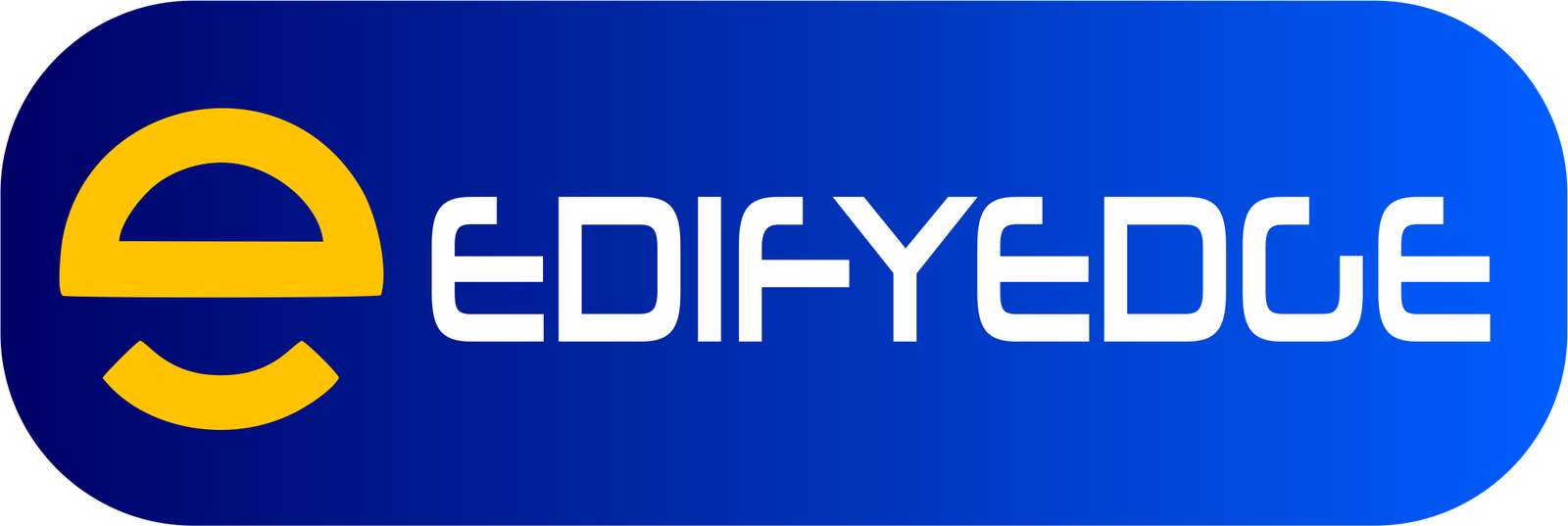What Are Pre-Approved Auto Loans?
Pre-approved auto loans are a financing option offered by lenders that allow you to secure an auto loan before you start shopping for a vehicle. With a pre-approved loan, the lender has already reviewed your credit history, income, and other financial information to determine your eligibility for a loan and the maximum amount you can borrow.
The pre-approval process works like this: You apply with a lender, either directly or through a third-party service, and provide the necessary documentation, such as proof of income, employment details, and your credit report. The lender then evaluates your creditworthiness and, if approved, issues you a pre-approval letter or certificate.
This pre-approval letter typically includes details like the maximum loan amount you qualify for, the interest rate range, and the loan term. Armed with this information, you can shop for a car within your approved budget and negotiate with dealers from a position of strength, knowing that your financing is already secured.
Pre-approved auto loans offer several benefits:
-
Easier Budgeting: Knowing your approved loan amount and interest rate range upfront allows you to set a realistic budget and narrow your vehicle search accordingly.
-
Negotiating Power: With pre-approved financing, you can focus on negotiating the best price for the vehicle, rather than being at the mercy of the dealer’s financing options.
-
Time-Saving: The pre-approval process is typically faster than applying for financing at the dealership, saving you time during the car-buying process.
-
Potential for Better Rates: By shopping around and comparing offers from multiple lenders before visiting the dealership, you may be able to secure a lower interest rate than what the dealer can offer.
Pre-approved auto loans streamline the car-buying process by separating the financing from the vehicle purchase, giving you more control and transparency over the terms of your loan.
Advantages of Pre-Approved Auto Financing
One of the primary advantages of obtaining a pre-approved auto loan is the potential for a faster and more streamlined car-buying process. With pre-approval in hand, you can skip the often time-consuming step of arranging financing at the dealership. This can save you valuable time and allow you to focus on negotiating the best deal on your desired vehicle.
Pre-approved auto loans can also provide access to better interest rates and terms compared to financing options offered at the dealership. Lenders offering pre-approval have a vested interest in securing your business, so they may be more inclined to offer competitive rates to win you over as a customer.
Another significant benefit of pre-approval is the increased negotiating power it affords you at the dealership. When you have a pre-approved loan offer, you can confidently negotiate the purchase price without being overly reliant on the dealer’s financing options. This leverage can potentially save you thousands of dollars over the life of your auto loan.
Furthermore, pre-approval allows you to shop around and compare offers from multiple lenders, ensuring you secure the most favorable terms for your financial situation. This flexibility empowers you as a consumer and helps you make an informed decision about your auto financing.
How to Get Pre-Approved for an Auto Loan
Getting pre-approved for an auto loan is a straightforward process that can save you time and money when shopping for a car. Here are the typical steps:
-
Check Your Credit Score: Lenders will evaluate your credit history and score to determine your creditworthiness. Knowing your score ahead of time can help you understand what interest rates to expect.
-
Gather Required Documents: You’ll need to provide personal and financial information, such as proof of income (pay stubs, tax returns), employment details, and residency verification. Having these documents ready can speed up the approval process.
-
Submit Your Application: You can apply for pre-approval directly with banks, credit unions, online lenders, or even some dealerships. Provide accurate information about your income, debts, and the type of vehicle you’re considering.
-
Review Pre-Approval Terms: If approved, the lender will provide a pre-approval letter or certificate outlining the maximum loan amount, interest rate, and other terms based on your creditworthiness.
-
Shop with Confidence: With a pre-approved offer in hand, you can negotiate at dealerships as a cash buyer, potentially securing better prices and avoiding being steered toward more expensive financing options.
It’s important to note that pre-approval is typically valid for a limited time (e.g., 30-60 days), and the final loan terms may vary slightly based on the specific vehicle you choose and any changes in your financial situation.
Pre-Approval vs. Pre-Qualification
Pre-approval and pre-qualification are often used interchangeably, but they are distinct processes with different implications for auto buyers. Understanding the differences can help you make an informed decision and streamline your car-buying journey.
Pre-Qualification
A pre-qualification is a preliminary assessment of your creditworthiness based on the information you provide to a lender. It typically involves a soft credit pull, which doesn’t impact your credit score. Pre-qualification gives you an estimate of the loan amount, interest rate, and monthly payment you might qualify for, but it’s not a guarantee of approval.
Pre-Approval
Pre-approval, on the other hand, is a more in-depth evaluation of your financial situation. It requires a hard credit inquiry, which can temporarily affect your credit score. Lenders will review your credit report, income, employment history, and other relevant factors to determine your eligibility for a loan and the specific terms they can offer.
Which is Better?
While pre-qualification can be a useful starting point, pre-approval is generally considered more advantageous for several reasons:
-
Stronger Negotiating Power: With a pre-approval letter in hand, you can negotiate from a position of strength at the dealership, as you already have a secured financing option.
-
Streamlined Process: Pre-approval simplifies the car-buying process, as you’ve already completed the most significant step – securing financing.
-
Time-Saving: Pre-approval allows you to focus on finding the right vehicle without worrying about financing, as that step is already complete.
However, it’s important to note that pre-approval is not a guarantee of financing, as the final approval is still contingent on the vehicle you choose and the verification of your information. Additionally, pre-approval letters typically have an expiration date, so you’ll need to act within that timeframe.
Factors Lenders Consider for Pre-Approval
When evaluating your pre-approval application for an auto loan, lenders will closely examine several key factors to determine your creditworthiness and ability to repay the loan. Here are some of the main considerations:
Credit Score: Your credit score is one of the most important factors in the pre-approval process. Lenders use your credit score to gauge your creditworthiness and the level of risk you pose as a borrower. A higher credit score typically results in more favorable loan terms, such as lower interest rates and higher loan amounts.
Income: Lenders want to ensure that you have a steady and sufficient income to make the monthly loan payments. They will typically ask for proof of income, such as pay stubs, tax returns, or bank statements. The higher your income, the more likely you are to be approved for a larger loan amount.
Debt-to-Income Ratio (DTI): This ratio compares your total monthly debt payments (including the proposed auto loan payment) to your gross monthly income. Lenders generally prefer a DTI ratio of 36% or lower, although some may accept higher ratios depending on your overall financial situation.
Employment History: Lenders often consider the stability and consistency of your employment. A longer and more stable employment history can increase your chances of pre-approval, as it demonstrates a reliable source of income.
Down Payment:
A larger down payment can improve your chances of pre-approval and potentially qualify you for better loan terms. Lenders view a higher down payment as a sign of financial commitment and reduced risk.
Loan Amount and Vehicle Value: Lenders will evaluate the loan amount you’re requesting in relation to the value of the vehicle you plan to purchase. They want to ensure that the loan amount is reasonable and that the vehicle serves as adequate collateral for the loan.
By carefully evaluating these factors, lenders can make an informed decision about your pre-approval status and the loan terms they are willing to offer. It’s important to maintain a strong financial profile and provide accurate information during the pre-approval process to increase your chances of securing favorable auto financing.
Best Lenders for Pre-Approved Auto Loans
When it comes to securing a pre-approved auto loan, you have several options to consider, including traditional banks, credit unions, and online lenders. Each type of lender has its own advantages and disadvantages, so it’s essential to evaluate your specific needs and circumstances to determine the best fit.
Banks
Many major banks offer pre-approved auto loan programs, making them a convenient option for those who already have an existing relationship with a particular institution. Some of the top banks for pre-approved auto loans include Chase, Bank of America, Wells Fargo, and Capital One. These banks typically have strict credit requirements and may offer competitive interest rates, especially for borrowers with excellent credit scores.
Credit Unions
Credit unions may be more willing to work with borrowers who have less-than-perfect credit, making them an attractive option for those with limited credit histories or past financial challenges.
Online Lenders
In recent years, online lenders have gained popularity due to their convenience and streamlined application processes. Companies like LightStream, Ally Auto, and myAutoLoan offer pre-approved auto loan options entirely online, allowing borrowers to shop for loans from the comfort of their homes. Online lenders may have more flexible credit requirements and competitive rates, particularly for those with good to excellent credit scores.
When choosing a lender for a pre-approved auto loan, it’s essential to compare interest rates, fees, repayment terms, and customer service ratings. Additionally, consider factors such as the lender’s reputation, online reviews, and any special offers or discounts they may provide. By conducting thorough research and comparing multiple options, you can increase your chances of securing the best pre-approved auto loan for your specific needs.
Using Your Pre-Approval at the Dealership
With a pre-approved auto loan offer in hand, you gain significant negotiating power at the dealership. The key is to let the dealer know upfront that you have financing lined up, but remain open to reviewing any offers they can provide. This pits lenders against each other, increasing your chances of getting the best possible interest rate and terms.
When discussing financing with the dealer, provide the details of your pre-approved loan, such as the loan amount, interest rate, and term length. This gives the dealer’s finance manager a benchmark to try and beat. If they can offer better rates or terms, you may want to reconsider and finance through the dealership. However, if their offer isn’t better, you can confidently move forward with your pre-approved loan.
It’s also wise to negotiate the vehicle price separately from the financing. Secure the best deal on the car itself, then turn to the financing options. Dealers may try to divert your attention with tantalizing financing deals when the actual vehicle pricing is unfavorable. Keeping these two elements separate allows you to ensure a fair price on the vehicle before scrutinizing the financing terms.
Remember, you hold the advantage with a pre-approved loan already secured. Use this leverage to extract the best overall package – an affordable vehicle price paired with low-interest financing on terms that fit your budget. With preparation and negotiation skills, your pre-approval can save you thousands over the life of the loan.
Pitfalls to Avoid with Pre-Approved Loans
Pre-approved auto loans can be a convenient way to secure financing before visiting a dealership, but there are some potential pitfalls to be aware of.
Limited Time Frame: Most pre-approvals have an expiration date, typically 30-60 days. If you don’t finalize your car purchase within that timeframe, the pre-approved offer may expire, and you’ll need to reapply, potentially facing different terms or rates.
Impact on Credit Score: Each time you apply for a pre-approval, the lender will perform a hard credit inquiry, which can temporarily lower your credit score by a few points. While a single inquiry may not significantly impact your score, multiple applications within a short period can add up.
Dealer Tactics: Some dealerships may try to persuade you to abandon your pre-approved loan and finance through their preferred lender instead, often with less favorable terms. They may claim to offer a better deal or use high-pressure tactics. It’s essential to carefully compare the offers and resist the temptation to deviate from your pre-approved loan unless the dealer’s offer is genuinely superior.
Remember, a pre-approved auto loan is a tool to help you negotiate from a position of strength, but it’s crucial to remain vigilant and protect your best interests throughout the car-buying process.
Pre-Approval for Bad Credit Auto Buyers
Having poor credit can make it challenging to get approved for an auto loan, but pre-approval can improve your chances. Many lenders offer pre-approved auto loans for bad credit borrowers, although the requirements and terms may be stricter.
Subprime lenders specialize in working with borrowers who have credit scores below 660. These lenders use risk-based pricing, meaning higher interest rates for lower credit scores. However, by obtaining pre-approval, you can shop for vehicles within your approved budget and secure financing before visiting the dealership.
To get pre-approved with bad credit, you’ll typically need to provide proof of income, employment information, and details about your living situation. Lenders may also require a larger down payment, usually 10% or more of the vehicle’s value. Be prepared to explain any negative items on your credit report and demonstrate your ability to make consistent payments.
While interest rates for bad credit pre-approved loans can be high, often 10% or more, pre-approval can give you negotiating power at the dealership and increase your chances of getting approved for financing. It’s essential to shop around and compare offers from multiple subprime lenders to find the best rates and terms for your situation.
Refinancing a Pre-Approved Auto Loan
Refinancing a pre-approved auto loan can be a smart move in certain situations. The primary reasons to consider refinancing include:
-
Lower Interest Rates: If market interest rates have dropped since you secured your original loan, refinancing could help you qualify for a lower annual percentage rate (APR). Even a small reduction in interest rate can translate into significant savings over the life of the loan.
-
Change in Credit Score: If your credit score has improved substantially since taking out the pre-approved loan, you may be eligible for better terms and rates by refinancing.
-
Change in Financial Situation: If your income has increased or your debt-to-income ratio has improved, refinancing could help you secure a more favorable loan.
To refinance a pre-approved auto loan, you’ll need to apply with lenders just as you did for the original loan. Gather documentation like pay stubs, tax returns, and the details of your current loan. Lenders will evaluate your creditworthiness and the value of your vehicle.
If approved for a better rate, the new lender will pay off your existing loan, and you’ll start making payments on the new refinanced loan. The process is typically straightforward, but be aware of potential fees like origination charges or prepayment penalties from your original lender.
Refinancing can potentially save you thousands of dollars in interest charges over the life of the loan. However, it’s essential to carefully calculate the costs and ensure the savings outweigh any fees or negative impacts on your credit score from opening a new loan account.
Pre-Approved Lease vs. Loan Options
When it comes to pre-approved financing, you have the option to either lease or purchase the vehicle. Both options have their own set of advantages and disadvantages, and the choice ultimately depends on your specific needs and preferences.
Leasing
Leasing a vehicle involves paying a monthly fee to use the car for a predetermined period, typically two to four years. At the end of the lease term, you have the option to either return the vehicle or purchase it at a predetermined price.
Pros:
- Lower monthly payments compared to financing
- Ability to drive a new vehicle every few years
- Warranty coverage during the lease term
- Potential tax benefits for business use
Cons:
- No ownership of the vehicle
- Mileage limits and penalties for excessive wear and tear
- Ongoing costs when you need to keep leasing
Financing (Loan)
Financing, or taking out a loan, involves borrowing money to purchase the vehicle outright. You’ll make monthly payments over a set term, typically three to seven years, until the loan is paid off, at which point you own the vehicle.
Pros:
- Ownership of the vehicle after the loan is paid off
- No mileage restrictions or penalties for wear and tear
- Potential to build equity in the vehicle
- Ability to sell or trade in the vehicle when desired
Cons:
- Higher monthly payments compared to leasing
- Responsible for maintenance and repair costs after the warranty expires
- Potential for negative equity if the vehicle depreciates faster than the loan is paid off
Ultimately, the decision between leasing and financing with a pre-approved option depends on your driving habits, budget, and personal preferences. Leasing may be more suitable for those who prefer driving new vehicles frequently and have a predictable annual mileage, while financing is a better choice for those who plan to keep the vehicle long-term and don’t mind higher monthly payments.
Pre-Approval for Used vs. New Cars
When seeking pre-approval for an auto loan, there can be some differences in the process and requirements depending on whether you’re purchasing a new or used vehicle.
For new cars, lenders tend to have more flexible qualification criteria and may offer lower interest rates. This is because new vehicles hold their value better and present less risk to the lender. Additionally, many manufacturers provide low-interest incentives and rebates to drive new car sales, which can make financing more attractive.
With used cars, lenders scrutinize applications more closely since the vehicle’s condition and history are unknown factors. They may require a higher credit score, lower debt-to-income ratio, or a larger down payment to offset the increased risk. Interest rates on used car loans also tend to be higher compared to new car financing.
That said, the pre-approval process itself is generally similar for new and used vehicles. Lenders will review your credit report, income, employment status, and existing debts to determine your creditworthiness and the maximum loan amount you qualify for.
One key difference is that for used cars, the lender may require additional details about the specific vehicle you intend to purchase, such as the make, model, year, and mileage. This information helps them assess the vehicle’s value and ensure you’re not overpaying, which could impact the loan terms.
Ultimately, while the pre-approval requirements may be slightly more stringent for used cars, securing pre-approved financing can still provide valuable benefits like a better negotiating position at the dealership and the peace of mind of knowing your budget upfront.
Common Pre-Approval Fees and Costs
When you get pre-approved for an auto loan, there are typically a few fees and costs to be aware of. These can vary depending on the lender, but here are some common ones:
Application Fee: Many lenders charge a non-refundable application fee to process your pre-approval application. This fee can range from $25 to $100 or more.
Documentation Fee: Lenders may charge a documentation fee to cover the costs of preparing and processing the loan paperwork. This fee is often around $100 to $300.
Credit Report Fee: To check your credit history and score, lenders will need to pull your credit report, which can incur a fee of $25 to $50.
Pre-Approval Fee: Some lenders may charge a pre-approval fee, which can be a flat rate or a percentage of the loan amount. This fee secures your pre-approved interest rate and loan terms for a set period, typically 30 to 60 days.
Interest Rate: While not a fee, the interest rate you’re pre-approved for will significantly impact the overall cost of your auto loan. Lenders consider factors like your credit score, income, and debt-to-income ratio when determining your interest rate.
It’s essential to understand all the fees and costs associated with your pre-approved auto loan before moving forward. Be sure to read the fine print and ask the lender about any additional fees or charges that may apply.
Tips for the Best Pre-Approved Auto Loan
Getting pre-approved for an auto loan is a smart move, but there are several tips to ensure you get the best deal possible:
Shop Around for Lenders: Don’t just go with the first lender that pre-approves you. Compare interest rates, fees, and loan terms from multiple banks, credit unions, and online lenders to find the most competitive offer.
Check Your Credit Report: Review your credit report beforehand and dispute any errors that could be dragging down your score. A higher credit score will qualify you for better interest rates.
Know Your Budget: Determine how much you can realistically afford for a monthly payment, and don’t let the lender entice you into borrowing more than you’re comfortable with.
Get Pre-Approved for More Than You Need: If you qualify for a higher loan amount than you require, it gives you more negotiating power at the dealership.
Negotiate Everything: From the vehicle price to the interest rate and fees, don’t be afraid to negotiate with the dealer to get the best overall deal.
Consider a Shorter Loan Term: While a longer loan term means lower monthly payments, you’ll pay more in interest over the life of the loan. A shorter term, such as 36 or 48 months, can save you thousands.
Avoid Dealer Financing If Possible: While convenient, dealer financing often comes with higher interest rates and fees compared to what you can secure from a bank or credit union.
By following these tips, you can leverage your pre-approved auto loan to get the best financing deal and maximize your savings on your next vehicle purchase.
Pre-Approved Auto Loan FAQs
What is a pre-approved auto loan?
A pre-approved auto loan is a type of financing where a lender has evaluated your creditworthiness and provided you with a pre-approved offer for an auto loan, including the maximum amount you can borrow and the estimated interest rate. This pre-approval gives you more bargaining power and confidence when shopping for a car.
How does pre-approval work?
They will then review your credit history, income, and other factors to determine if you qualify for a pre-approved loan offer. If approved, you’ll receive the terms and conditions, which you can then use when negotiating with car dealerships.
What are the benefits of pre-approval?
Pre-approval streamlines the car-buying process by allowing you to shop for a vehicle with a pre-determined budget and interest rate. It also gives you more negotiating power at the dealership since you’re essentially a cash buyer. Additionally, pre-approval can help you avoid being overcharged or falling for predatory lending practices.
How long is a pre-approval valid?
The validity period for a pre-approved auto loan varies by lender, but it’s typically between 30 and 90 days. During this time, you’ll need to secure a vehicle and finalize the loan process before the pre-approval expires.
Some lenders specialize in subprime auto loans and may be willing to provide pre-approval based on your specific circumstances. However, you should expect higher interest rates and potentially less favorable terms.
Does pre-approval guarantee loan approval?
No, pre-approval is not a guarantee of final loan approval. The lender will still need to verify the information you provided, assess the vehicle you’ve chosen, and review any changes to your financial situation before finalizing the loan. However, pre-approval significantly increases your chances of being approved for the loan.



